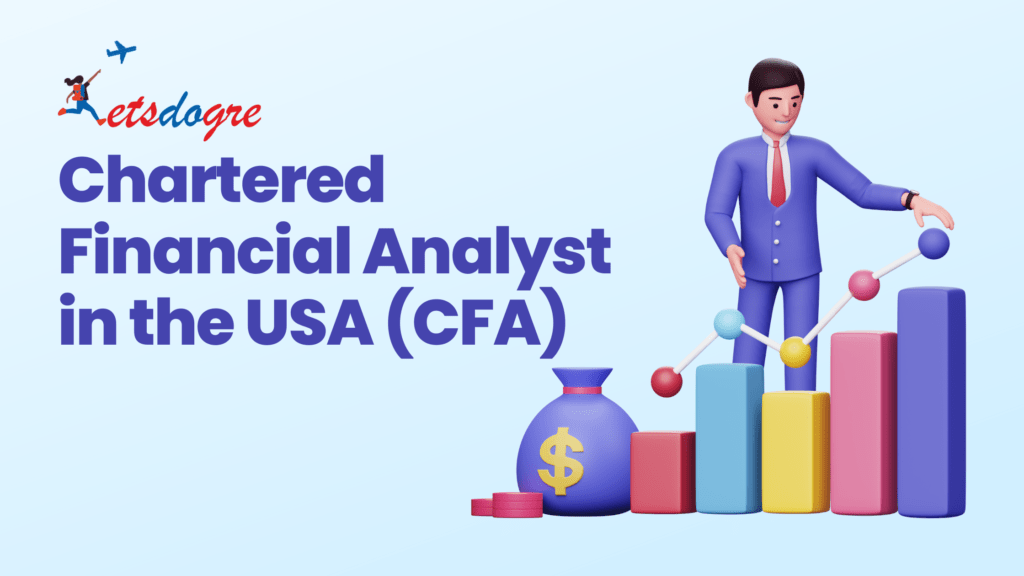
- April 12, 2024
- 5:22 am
-
Views: 89
Ph.D. in Finance in USA and Europe
What is Finance?
Embarking on the journey towards a Ph.D. in finance is a significant decision for any aspiring scholar. Given the field’s multifaceted nature and global significance, choosing the right academic environment is crucial for fostering intellectual growth and professional development. For many prospective Ph.D. candidates, the decision often boils down to two distinct regions renowned for their academic prowess: Europe and the USA.
Research Areas related to Finance
- Corporate Finance
- Investment Management
- Financial Markets
- Banking and Financial Institutions
- Risk Management
- Financial Analysis
- Financial Planning and Wealth Management
- Real Estate Finance
- Behavioral Finance
- International Finance
Europe: A Tapestry of Tradition and Innovation
Europe, a beacon of academic excellence and cultural diversity, has always been a hub for scholars eager to expand the frontiers of knowledge. When it comes to a Ph.D. in finance, European universities stand out for their unique blend of tradition and innovation, providing an ideal environment for scholarly exploration.

Advantages of Pursuing a PhD in Finance in Europe
Academic Prestige: European universities are renowned for their esteemed faculties and rigorous academic standards. Institutions such as Oxford, Cambridge, the London School of Economics, and Zurich’s ETH are globally recognized for their contributions to financial research.
Interdisciplinary Collaboration: Europe champions multidisciplinary collaboration, urging scholars to incorporate insights from economics, mathematics, and other fields into their research. This approach not only enriches the academic journey but also fosters a comprehensive understanding, setting European PhD candidates apart.
Cultural Diversity: Studying in Europe exposes PhD candidates to a mosaic of cultures, languages, and academic traditions. This cultural immersion enhances perspective-taking and fosters a global outlook, which is essential for navigating the complexities of today’s interconnected financial landscape.
Research Opportunities: Europe’s financial hubs, such as London, Frankfurt, and Zurich, offer unparalleled access to real-world financial markets and institutions. PhD candidates can leverage these opportunities for empirical research, industry collaborations, and hands-on experience.
Funding and Scholarships: Many European universities offer generous funding packages and scholarships to attract top-tier PhD candidates. These financial incentives often cover tuition fees, provide stipends for living expenses, and support research-related activities, easing the economic burden of doctoral studies.
Educational Qualification required to pursue a Ph.D. in finance in Europe
To pursue a Ph.D. in finance in Europe, the candidate should have a Bachelor’s degree in finance or a related subject.
Application Requirements for a Ph.D. in Finance in Europe
Statement of Purpose: A written statement outlining the applicant’s academic background, research interests, career goals, and reasons for pursuing a Ph.D. in Finance. This document should demonstrate the applicant’s motivation, preparedness, and alignment with the program’s objectives.
Research Proposal: Some programs may require applicants to submit a research proposal outlining their proposed research topic, objectives, methodology, and potential contributions to the field of finance. This demonstrates the applicant’s research interests and potential for independent research.
Curriculum Vitae: A CV detailing the applicant’s educational background, work experience, research projects, publications, academic achievements, and any relevant extracurricular activities or professional certifications.
Academic Transcripts: Official transcripts of undergraduate and any graduate coursework completed, demonstrating strong academic performance, particularly in relevant subjects such as finance, economics, mathematics, or related fields.
Proof of German Language Proficiency: For Ph.D. programs in Finance in Germany, proof of German language proficiency may be required for international applicants, particularly if the program is taught in German or if the applicant plans to conduct research in German-speaking environments.
Letters of Recommendation: Applicants are usually required to submit letters of recommendation from academic or professional referees who can attest to the applicant’s academic abilities, research potential, and suitability for doctoral study in finance.
Writing Samples: Some programs may request writing samples or academic essays to assess the applicant’s writing skills, critical thinking abilities, and analytical capabilities.
Some European Universities offering Ph.D. in Finance
Masaryk University
Frankfurt School of Finance & Management
Maynooth University
University of Bristol
University of Zurich
University of Birmingham
Tilburg University
University of Warwick
Connect with us for more information on universities offering PhD in Finance in the Europe
Ph.D. in finance in the USA
Across the Atlantic, the United States stands as a powerhouse of innovation and entrepreneurship, offering a dynamic environment for doctoral research in finance. With its cutting-edge research facilities, vibrant academic communities, and strong ties to industry, pursuing a Ph.D. in finance in the USA presents a wealth of opportunities for ambitious scholars.
Advantages of Pursuing a PhD in Finance in the USA:
Research Funding and Resources: American universities boast robust research funding and state-of-the-art facilities, enabling PhD candidates to pursue ambitious research agendas. The USA’s entrepreneurial spirit fosters innovation and creativity, encouraging scholars to push the boundaries of knowledge in finance and related fields.
Industry Connections: The USA’s close ties to the financial industry provide unparalleled opportunities for PhD candidates to engage with practitioners, policymakers, and industry leaders. Collaborations with industry partners enrich the research process, offering valuable insights and real-world applications for academic work.
Flexibility and Diversity: American universities offer flexibility in course offerings and research interests, allowing Ph.D. candidates to tailor their programs to align with their academic passions and career goals. The USA’s diverse academic landscape accommodates a wide range of research interests, from theoretical finance to applied economics and everything in between.
Career Opportunities: A Ph.D. in finance from a reputable American university opens doors to a myriad of career opportunities in academia, industry, and government. Graduates are well-positioned to pursue tenure-track faculty positions, research roles in think tanks and policy institutions, or lucrative positions in the private sector.
Educational Qualification required to pursue a Ph.D. in Finance in the USA
In the USA, applicants need a bachelor’s degree in finance or a related subject to pursue a Ph.D. in finance.
Application Requirements for a Ph.D. in Finance in the USA
- Statement of Purpose: A written statement outlining the applicant’s academic background, research interests, career goals, and reasons for pursuing a Ph.D. in Finance. This document should demonstrate the applicant’s motivation, preparedness, and alignment with the program’s objectives.
- Personal Statement: A well-crafted personal statement outlining the applicant’s academic background, research interests, career aspirations, and reasons for pursuing a Ph.D. in Finance. This document provides insight into the applicant’s motivations, experiences, and fit with the program.
- Curriculum Vitae (CV): A detailed CV or resume highlighting the applicant’s educational background, work experience, research projects, publications, academic achievements, and any relevant extracurricular activities or professional certifications.
- Academic Transcripts: Official transcripts from all undergraduate and graduate institutions attended, demonstrating strong academic performance, particularly in relevant subjects such as finance, economics, mathematics, or related fields.
- Letters of Recommendation: Applicants are usually required to submit letters of recommendation from academic or professional referees who can assess their academic abilities, research potential, and suitability for doctoral study in finance.
- English Proficiency: International applicants whose native language is not English may need to prove their English proficiency.
- English Proficiency Waiver: Some institutions may offer waivers for the English proficiency requirement under certain circumstances. Waivers are typically granted to applicants who have completed their previous education in English-speaking institutions or countries or who meet specific criteria demonstrating English proficiency. Applicants should carefully review the eligibility requirements for English proficiency waivers and provide supporting documentation as needed.
Some US Universities offering Ph.D. in Finance
Emory University
University of Missouri
Drexel University
University of Pennsylvania
Arizona State University
University of Illinois
University of Illinois
Connect with us for more information on universities offering PhD in Finance in the Europe
Conclusion: Charting Your Course in Finance Academia
Whether you choose to pursue a PhD in finance in Europe or the USA, one thing is certain: the journey will be intellectually stimulating, professionally rewarding, and personally enriching. Each region offers unique advantages and opportunities, catering to diverse academic interests and career aspirations.
As you chart your course in finance academia, consider your academic passions, career goals, and personal preferences. Research potential advisors, explore university programs, and reach out to current students and alums to gain insights into the academic culture and research environment.
Ultimately, whether you find yourself immersed in the historic halls of Europe’s esteemed universities or navigating the bustling campuses of America’s top institutions, seize the opportunity to contribute to the advancement of knowledge in finance and make a meaningful impact on the world around you. The journey toward a Ph.D. in finance is not merely about acquiring expertise; it’s about pushing the boundaries of knowledge, forging lifelong connections, and leaving a lasting legacy in the field of finance.
Frequently Asked Questions
University Fellowships: Many universities in the USA offer fellowship programs specifically for Ph.D. students in finance. These fellowships may cover tuition expenses, provide a stipend for living expenses, and include additional benefits such as research funding or travel grants.
Graduate Assistantships: Graduate assistantships, including teaching assistantships and research assistantships, are common sources of funding for Ph.D. students in finance. These positions typically involve assisting faculty members with teaching responsibilities or conducting research projects. In return, students receive a stipend and may also receive tuition remission or other benefits.
External Scholarships and Grants: Ph.D. students in finance can apply for external scholarships and grants offered by government agencies, nonprofit organizations, and industry associations. These scholarships may be merit-based, need-based, or focused on specific research areas within finance.
Industry Sponsorships and Fellowships: Some companies and industry organizations sponsor Ph.D. students in finance through fellowship programs or research grants. These sponsorships may provide financial support, access to industry data and resources, and opportunities for collaboration with industry professionals.
Research Grants and Fellowships: Ph.D. students in finance can apply for research grants and fellowships to support their dissertation research or other research projects. These grants may be awarded by research councils, foundations, and private organizations and can provide funding for data collection, analysis, and dissemination of research findings.
University Fellowships: Many universities in Europe offer fellowship programs specifically for Ph.D. students in finance. These fellowships may cover tuition expenses, provide a stipend for living expenses, and include additional benefits such as research funding or travel grants.
Government Scholarships and Grants: Government-funded scholarships and grants are available in various European countries to support doctoral research in finance. These scholarships may be awarded based on academic merit, research potential, or specific criteria set by government agencies or ministries.
European Union (EU) Funding Programs: The European Union offers various funding programs to support research and innovation, including doctoral training networks, collaborative research projects, and Marie Skłodowska-Curie Actions (MSCA). Ph.D. students in finance can benefit from these EU-funded initiatives, which provide financial support and international networking opportunities.
Research Grants and Fellowships: Ph.D. students in finance can apply for research grants and fellowships offered by research councils, foundations, and nonprofit organizations. These grants may support specific research projects, cover research-related expenses, or provide funding for conference attendance and publication costs.
To create a standout application for a Ph.D. program in Finance in the USA, focus on maintaining top grades, gaining research experience, and securing strong letters of recommendation. Craft a compelling statement of purpose tailored to each program, showcasing your research potential and alignment with faculty expertise. Additionally, aim for impressive GRE scores, highlight relevant work experience, and emphasize your contribution to diversity and inclusion within the academic community.
Shortlisting universities is crucial as it allows applicants to focus their efforts on institutions that best align with their academic and career goals. By researching and evaluating factors such as faculty expertise, research opportunities, program reputation, and location, applicants can make informed decisions about where to apply. This strategic approach maximizes the likelihood of acceptance to programs that offer the resources, support, and environment necessary for success in their Ph.D. journey.
Yes, it is possible to pursue a Ph.D. in Finance after obtaining a Chartered Financial Analyst (CFA) designation. While a CFA designation demonstrates expertise in finance and is highly regarded in the industry, a Ph.D. offers specialized training in research and academia. Individuals with a CFA background may choose to pursue a Ph.D. to deepen their understanding of finance, contribute to academic research, or pursue careers in teaching and research. However, admission to Ph.D. programs typically requires a strong academic background, research experience, and alignment with the program's focus areas.
A Ph.D. in finance in the USA typically takes 4 to 6 years to complete. This includes coursework, comprehensive exams, research, and dissertation writing, with variations based on individual progress and program requirements.
The cost of a Ph.D. in Finance in the US can range from approximately $50,000 per year for tuition and fees, depending on the institution and whether you qualify for in-state tuition rates or scholarships. Additionally, students should budget for living expenses, which can vary based on location and lifestyle. Overall, the total cost of a Ph.D. program can amount to tens of thousands of dollars, but many students receive funding through assistantships or fellowships, reducing their out-of-pocket expenses.





